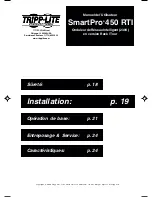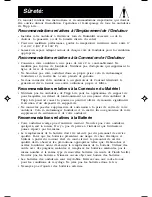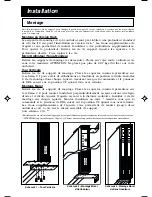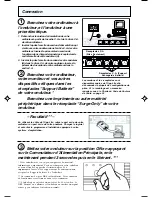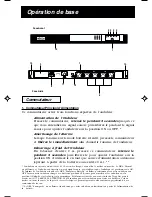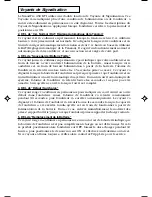
Other UPS Features
6. AC Receptacles (Battery Backup-Supported)
These receptacles provide your connected equipment with AC line power during
normal operation and battery power during blackouts and brownouts. They also
protect your equipment against damaging surges and line noise. Connect com-
puter, monitor and other essential equipment to these receptacles.
7. AC Receptacle (Surge-Only)
This receptacle provides heavy-draw equipment that does not require battery
backup (such as a printer) with complete surge and line noise protection
without committing valuable battery power to support it during blackouts. Do
not connect computers or other essential equipment to this receptacle.
8. “SMART” RS-232 Port
The RS-232 port connects your UPS to any PC or workstation. Use with included
PowerAlert Software and cabling to monitor and manage network power and
automatically save open files and shut down equipment during a power failure.
This port uses RS-232 communications to transmit UPS and power conditions.
9. Accessory Slot
Contact Tripp Lite Customer Support for more information and a list of available
SNMP, network management and connectivity products.
10. Mounting Brackets
The mounting brackets are shipped already set for mounting the UPS in
standard 48 cm. (19 in.) racks. See Installation section for instructions on
using the mounting brackets to suit under-monitor, tower and wall-mount
applications.
11. AC Input Receptacle
Connect one end of the detachable line cord into this receptacle and the other
end into your wall outlet.
12. Battery Replacement Door
Under normal conditions, the original battery in your UPS will last several
years. Battery replacement should be performed only by qualified service
personnel. Refer to “Battery Warnings” in the Safety section. When replacing
batteries, qualified service personnel should follow this procedure: 1) Turn UPS
OFF; 2) Remove the snap-on battery replacement door, on left front of unit; 3)
Pull batteries partially out of case; 4) Make a detailed sketch of the batteries
and the polarity, color and connection of all cables; 5) Disconnect battery
terminals; 6) Dispose of used batteries; 7) Reconnect replacement batteries
exactly as original batteries were connected; 8) Push batteries back into case
and replace cover.*
* You may not receive full runtime until your replacement batteries have fully charged.
13. Circuit Breaker
A resettable circuit breaker protects equipment plugged into battery backup-
supported AC receptacles against short circuits and system overloads. If the
circuit breaker trips, unplug at least one piece of equipment from the AC
receptacles and reset the breaker by pressing the button back into place.
200004074 Smart 450 RTI 230V OM.p65
4/14/00, 3:11 PM
7

















